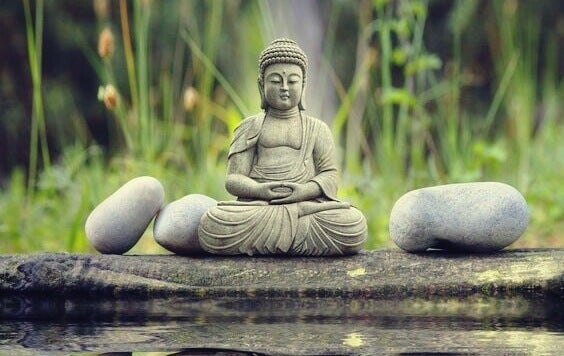The unconscious and the subconscious are concepts that appear in many Eastern philosophies. One of these aspects led to the so-called “psychology of self-knownness”. This work has analyzed the different levels of consciousness and how they interact with each other. great relevance, as they consider that once these levels are reached, the welfare state is reached.
Although this is not a strictly scientific approach, its coincidence with Western knowledge is remarkable, especially when many of these concepts, such as the unconscious and the subconscious, are ancient, so it is curious to know how to largely address what the Western world has developed as psychological schools.
“Consciousness is the voice of the soul: passions are the voice of the body. “William Shakespeare?
Here and here, consciousness occupies an important place. The ultimate goal in east and west is to achieve a greater state of consciousness, implicitly sharing the idea that ignorance is a source of error and unhappiness, so well-being would be found through self-awareness and expression in consciousness. Let’s take a closer look.
For the so-called “psychology of self-awareness”, the world of forms is the one that appears, it has to do with everyday life, with what we see and perceive in everyday life, are the objects, places and situations that we have to face all the time. This corresponds to what we in the West call “perception. “Contact with reality through the senses.
This oriental aspect says that this dimension includes our habitual behaviors, which we usually show ourselves to the world, our habits and our daily relationships with others. The world of shapes is misleading, because it only allows superficial visualization. Perception in the West is also seen as a primary level of knowledge that is easily misleading.
According to the Orientals, the unconscious corresponds to an area of our being where the unconscious content is located; in particular, this is where the very problematic aspects, such as complex and phobias, reside. This corresponds to what we in the West call “pre-consciousness. I mean, we all have the intuition of ourselves, but we don’t know it consciously.
Some Eastern philosophies say that the unconscious contains extremely dense vibrations. These affect the way we see ourselves and our relationships with others. They condition much of our behavior. Most of our fears, anxieties and susceptibility reside there. All this is only overcome by self-know-how.
The orientals’ emphasis on this aspect emphasizes that the subconscious is the deepest and most unknown region of every human being; however, there is a force of darkness and a force of light; in the realm of darkness are all vices and failures. the kingdom of light are the greatest virtues of every human being.
In the subconscious are therefore the deeper reasons for our behavior. Chess is a force that limits our growth. They function as an imperceptible energy that leads us to act destructively or self-destructively, without us knowing why and how.
In turn, virtues are those that arise at decisive moments, constituting proof of our greatness. The concept of subconscious corresponds to what we in the West call the “unconscious. “
This aspect proposes that when we manage to establish a harmony or the encounter between the unconscious and the subconscious, consciousness arises, which is the result of self-knowledge and allows the noblest values of the human being to reach fullness, this corresponds to the elderly. success of life and, therefore, happiness.
The unconscious and the subconscious are the levels of consciousness to which we usually move, when they harmonize values such as love, sincerity, understanding, courage, humility, spirituality, brotherhood, etc. , ultimately all very constructive values for us and for others are developed.
It is interesting to observe how the Orientals greatly value preconscious and unconscious wisdom, that is, what inhabits the unconscious and the subconscious, it is not pure reason that leads to truth and well-being, on the contrary, it is reason. applied to all knowledge, which remains dormant in these grey and dark areas that inhabit us.
Finally, in the East, one of the maxims that Western culture founded is also highly appreciated: “You know?Separated by great distances and dissonances over time, there are finally many aspects where the conclusions are similar.

